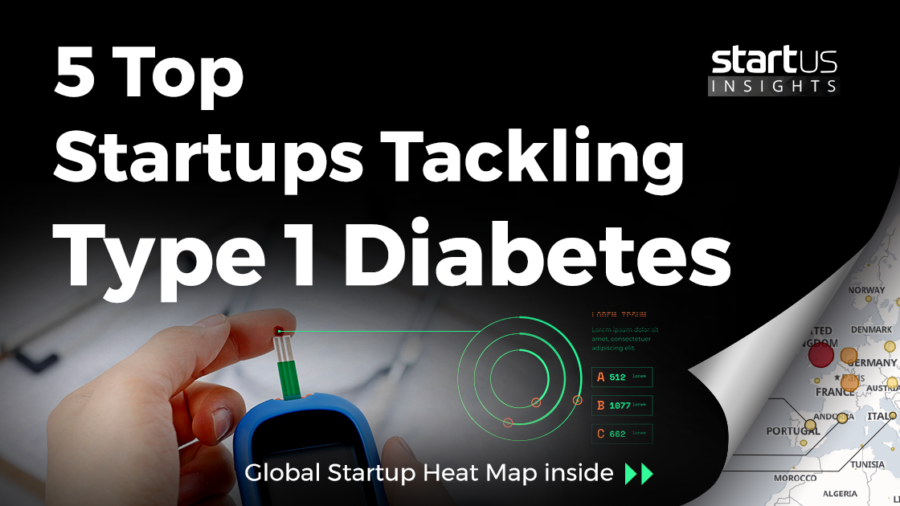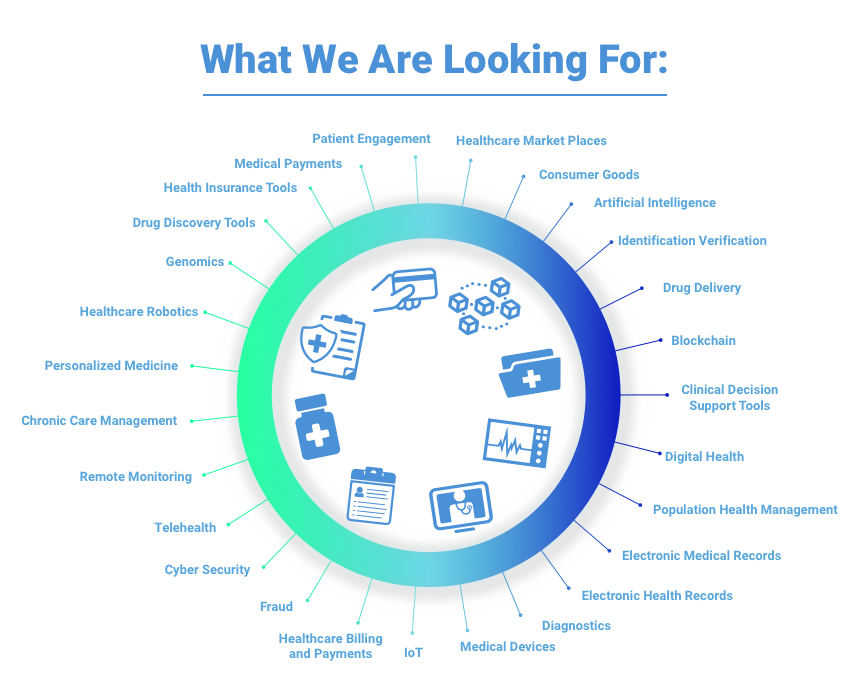Types of healthcare startups include digital health apps, telehealth platforms, medical devices companies, and health data analytics firms. Healthcare technology startups focus on innovative solutions to improve patient care.
Healthcare startups are reshaping the medical industry by leveraging cutting-edge technology to address various challenges. They pioneer advancements that increase accessibility, improve diagnosis, enable effective treatments, and enhance health management. Entrepreneurs often target inefficiencies in care delivery, aiming to reduce costs while increasing quality.
Specialized startups range from biotech firms developing new drugs to AI-driven diagnostic tools that predict patient outcomes. These new ventures attract significant attention from investors, given their potential to revolutionize a sector marked by growing demand and technological change. Amidst a fast-evolving landscape, healthcare startups stand out for their role in pushing the boundaries of what’s possible in medical care, therapy, and patient interaction.
Healthcare Startups Revolutionizing Medicine
The Surge In Health Tech
Healthcare startups are booming. They bring new tools and solutions to practitioners and patients alike. Let’s examine some categories these pioneers occupy:- Telemedicine Platforms: Connect with doctors through video calls.
- Wearable Tech: Track health metrics round the clock.
- Healthcare Analytics: Use data for better care decisions.
- Personalized Medicine: Tailor treatments to individual genetic profiles.
What’s Driving The Boom?
Multiple factors fuel this ecosystem’s expansion. The demand for innovative healthcare solutions is at an all-time high. Here are core drivers:- Rising Healthcare Costs: Streamlining to save costs.
- Advancements in Technology: Tech makes previously impossible tasks possible.
- Consumer Expectations: Patients seek convenience and better services.
- Investment Inflow: A steady stream of funding backs these startups.

Credit: appinventiv.com
Telemedicine: Virtual Healthcare Delivery
Connecting Patients And Doctors Remotely
Telemedicine breaks down barriers between patients and healthcare providers. By connecting virtually, patients get care even from far away. Demands for convenience and efficiency drive this trend. Patients can now chat with doctors, share health data, and receive treatment advice without stepping foot in a clinic.- Video conferencing for real-time face-to-face doctor’s visits.
- Secure messaging for quick health questions and updates.
- Remote monitoring for chronic conditions, keeping doctors informed.
Telemedicine Platforms Gaining Ground
Technology advancements fuel the rise of telemedicine platforms. These platforms provide the tools needed for virtual healthcare delivery. They feature user-friendly interfaces and robust back-end systems to ensure seamless operation. The continuous growth in the telemedicine sector is a testament to the enduring value of these platforms.| Feature | Benefits |
|---|---|
| Electronic Prescriptions | Fast, accurate, and convenient medication orders. |
| Virtual Waiting Rooms | Reduce physical wait times; increase comfort. |
| Data Encryption | Ensure patient privacy and data security. |
Ai And Machine Learning In Healthcare
Predictive Analytics For Patient Care
Predictive analytics uses data to foresee health issues. It helps doctors act fast, which can save lives. Here are some ways startups use it:- Sensing patient risks before they happen
- Tailoring patient care plans
- Reducing hospital readmission rates
Automated Diagnosis Systems
Automated diagnosis systems are smart tools that spot diseases quickly. This is how they benefit health services:| Advantage | Impact |
|---|---|
| Fast detection | Patients get treated sooner. |
| Accurate results | Fewer mistakes in diagnosis. |
| 24/7 availability | Support anytime, not just office hours. |
Wearable Health Tech
Monitoring Vital Signs At Home
Wearable health devices have revolutionized the way people monitor their health. These small, high-tech gadgets track various vital signs. Wearers get real-time insights into their body’s functioning, leading to prompt health decisions.- Heart rate monitors ensure your pulse is steady
- Blood pressure cuffs alert you to any irregularities
- Blood glucose trackers help manage diabetes effectively
- Oxygen saturation sensors detect early signs of respiratory issues
The Future Of Personal Health Devices
This dawn of personal health devices is only the beginning. The potential expansion in this field is immense. Scientists and developers collaborate to create even more sophisticated and seamless health monitoring features.| Device Type | Future Potential |
|---|---|
| Smartwatches | Stress and mood detection |
| Smart clothing | Posture and movement correction |
| Fitness trackers | Real-time nutrition and hydration advice |
| Implantables | Long-term health trend analysis |
Biotech Startups: Pioneering New Treatments
Gene Editing And Therapy
We are in an era where our genetic code can be tweaked. Gene editing is a big deal. It allows doctors to fix errors in our DNA. These errors can cause diseases.- CRISPR: A tool that acts like scissors. It cuts DNA at specific places.
- Gene therapy: A way to treat diseases. New genes replace or fix faulty ones.
Customized Drugs And Precision Medicine
Customized drugs change how we treat illness. They match treatments to our unique bodies. That means better results and fewer side effects.| Customized Aspect | Benefit |
|---|---|
| Genetic Profile | Drugs work well with your genes |
| Lifestyle | Treatments fit your daily life |
| Environment | Consider where you live and work |
Healthcare Marketplaces And Comparison Platforms
Empowering Patient Choices
Healthcare marketplaces put power in patients’ hands. They allow users to:- Search for a wide range of medical services.
- Compare different health providers.
- Choose the service that fits their needs.
Cost Transparency And Provider Reviews
Knowing the cost upfront matters. These platforms show the cost of services clearly. They also allow users to:- Review detailed breakdowns of potential expenses.
- Compare prices across different providers.
- Understanding the quality of care.
- Learning from other patients’ experiences.
Mental Health And Wellbeing Apps
Digitizing Mental Health Support
Technology bridges the gap between people and psychological support. A variety of apps provide instant connection with mental health professionals. Users find therapists, schedule sessions, and access self-help tools. The table below shows different ways apps offer help:| Feature | Advantages |
|---|---|
| 24/7 Chats | Continuous support |
| Therapy Sessions | Professional help from anywhere |
| Self-Help Guides | Personal growth at one’s pace |
The Rise Of Mindfulness Applications
Mindfulness apps are a booming niche. They teach users meditation and breathing techniques. These skills lead to better sleep, less stress, and improved focus. Check out the features these apps commonly offer:- Guided Meditations: Step-by-step instructions
- Sleep Stories: Narratives to improve bedtime
- Breathing Exercises: Reduce anxiety
- Progress Tracking: Document growth journey

Credit: atdc.org
Digital Health Records And Data Management
Streamlining Record Keeping
Digital systems transform how clinics store health records. They turn piles of paper into secure digital files. This leap means less space and quicker searches. Healthcare workers save time. Doctors focus more on patients, less on paperwork.- Efficiency: Fast file retrieval
- Accuracy: Fewer errors in records
- Security: Protected patient data
Improving Access To Patient Data
Easier access to health records is vital. Both doctors and patients benefit. With digital data management, your health history is a click away. This means better care, wherever you are.| Patient Benefits | Doctor Benefits |
|---|---|
| Quick personal data access | Complete patient history |
| Easy health monitoring | Efficient diagnosis |
| Health trend insights | Coordinated care plans |
Healthcare Startup Challenges And Considerations
Navigating Regulatory Environments
Healthcare regulations are intricate and ever-changing.- Startups must understand local and global regulations.
- They must adhere to standards such as HIPAA and GDPR.
- Aligning product development with compliance is a key strategy.
Securing Patient Data And Privacy
Maintaining trust is paramount in healthcare. Securing sensitive patient information is not just ethical, but a legal imperative.| Consideration | Action |
|---|---|
| Encryption | Implement end-to-end encryption for data security. |
| Access Control | Establish strict access protocols and authentication. |
| Auditing | Regularly audit systems for any vulnerabilities. |

Credit: www.startus-insights.com
Investing In Health Innovation
Venture Capital In Health Startups
Venture Capitalists (VCs) actively seek out promising healthcare startups. They bring not just funds, but also mentorship and networks. This support can accelerate growth. Below, find key aspects of VC involvement in health startups:- Early-stage funding to develop groundbreaking health technologies
- Strategic guidance from experienced entrepreneurs and industry experts
- Building partnerships with established healthcare entities
- Develop a solid business plan with clear objectives and metrics
- Showcase a unique value proposition that stands out in the healthcare market
- Demonstrate a scalable model that can grow and adapt with the industry
The Impact Of Crowdfunding
Crowdfunding opens healthcare innovation to a wider audience. Anyone can contribute, not just big investors. It democratizes funding. Crowdfunding platforms like Kickstarter and Indiegogo are popular for this. Below, see how crowdfunding changes the healthcare startup landscape:| Crowdfunding Benefit | Impact on Healthcare Startups |
|---|---|
| Public Engagement | Raises awareness and builds community support |
| Market Validation | Provides real-world feedback on products and services |
| Risk Mitigation | Lowers financial risk by securing funds upfront |
Frequently Asked Questions Of Types Of Healthcare Startups
What Is A Health Care Startup?
A health care startup is an emerging company focused on innovating within the health care industry, often through technology or services to improve patient care.
How Many Healthcare Startups Are There In The Us?
As of my last update in early 2023, there are over 12,000 healthcare startups in the United States. They focus on various innovations ranging from telehealth to medical devices.
How To Start A Healthcare Business?
Research the healthcare market and determine your niche. Create a comprehensive business plan. Secure financing through loans or investors. Obtain necessary licenses and certifications. Choose a location and prepare your facilities. Market your services to potential clients.
What Do Healthtech Companies Do?
HealthTech companies develop technologies to improve healthcare delivery. They create innovative solutions like telemedicine services, medical apps, and diagnostic tools to enhance patient care and streamline clinical operations.
Conclusion
Exploring the diverse landscape of healthcare startups reveals a sector teeming with innovation and promise. From telemedicine platforms to AI diagnostic tools, these emerging companies are reshaping patient care. Their impact extends beyond treatment, offering enhanced accessibility and personalized health solutions.
As the industry evolves, these startups stand at the forefront, driving change and bettering lives through technology.



